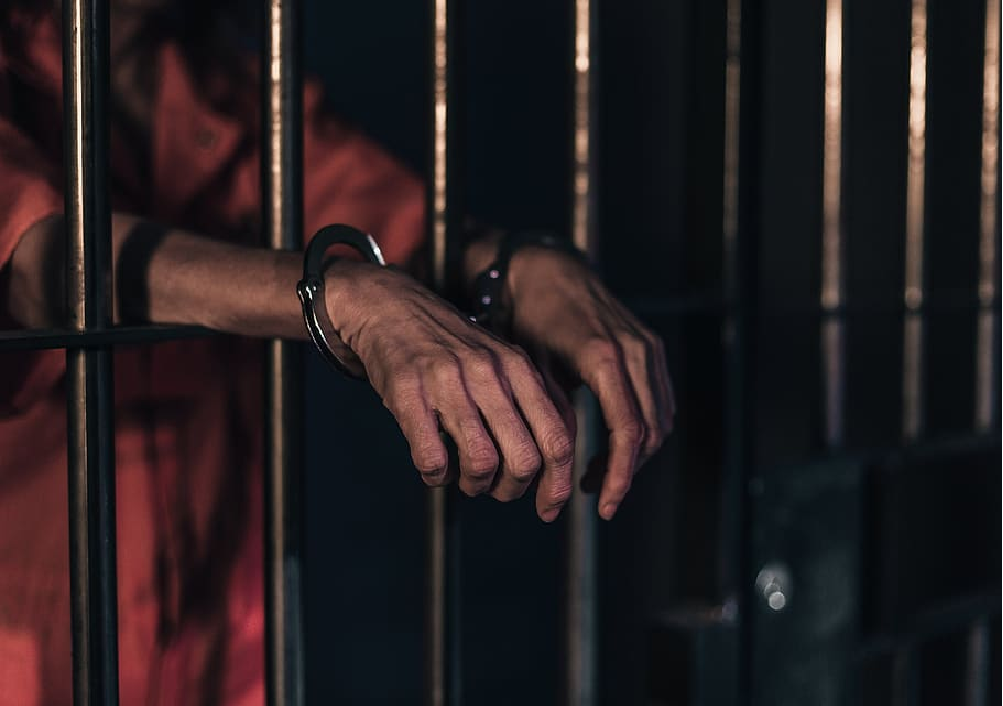Courts refusing to release prisoners on bail: Maha govt tells HC on worsening Covid crisis in jails

By LE Desk
Mumbai, April 21: “Various lower Courts throughout the State have been refusing to release prisoners on bail, temporary bail, etc. in view of the facts and circumstances of the respective cases,” the Maharashtra government said in its affidavit filed in the Bombay High Court which is hearing a suo moto petition on the rise in Covid-19 cases in prisons.
The Maharashtra government also told the Bombay High Court that prison authorities were taking appropriate steps to provide the best possible treatment to Covid-19 infected prisoners – to contain the spread of the virus. The state government has also enlisted measures to decongest the jails, India Today reported.
Advocate General (AG) Ashutosh Kumbhakoni appearing for the state, informed the court that even though the jail authorities were taking appropriate steps towards implementation of the decision by the High Power Committee (HPC) constituted as per the March 2020 order of the Supreme Court, “for reasons and grounds beyond the control of prison authorities” inmates of some prisons have been infected with Covid.
Ashutosh Kumbhakoni said that to prevent and control the spread of the virus inside the prisons, drives have been undertaken for vaccinating prisoners and staff members. However, the central guidelines only allowed vaccinations above the age of 45 years. Only those eligible prisoners are being vaccinated so far, he said.
Further, considering the rise in cases, the State made some suggestions to the court about decongesting jails. Following the HPC guidelines, decongestion of prisons could happen “at least to a sizable extent” said the state.
Creating new prisons was another suggestion, the proposal for this has been given, the AG said.
Ashutosh Kumbhakoni informed the Bench led by Chief Justice Dipankar Datta that six such proposals were actively being considered by the concerned authorities, but appropriate directions could be given to them for speedy consideration.
Another measure which the prison authorities had resorted to previously was to lodge prisoners in “temporary prisons” created by converting educational institutions into prisons.
During the previous outbreak, it was submitted, there were 36 such prisons that had to be given back once the education institutions reopened.
With the present outbreak, the prison authorities have commenced reclaiming the institutions to convert them into temporary prisons and so far they have reclaimed 14.
The State government suggested that no prisoner should be freshly admitted to any prison unless and until his RT-PCR test result is negative.
However, the prison authorities faced difficulties because once an undertrial prisoner is granted magistrate custody he has to be transferred from police custody to judicial custody immediately and the RT-PCR tests take at least 24 hours.
It was suggested that the prisoner ought to be allowed to continue with the police custody till the results come, according to India Today.
Chief Justice Datta suggested that a provision can be made to ensure that the arrested person is tested even before he is produced before the magistrate for the first time. “Because there is a chance of spreading the virus in the police personnel,” he added.
The state government also suggested that a direction may be issued by the Court to do away with the need for the physical presence of undertrial prisoners in the Court and permit their presence only through a video-conferencing facility. Ashutosh Kumbhakoni argued that despite having provisions for video-conference facilities, some lower courts and some accused insisted on physical presence in courts.
Ashutosh Kumbhakoni said if there is an order of the Court then the denial for physical presence can be backed by the prison authorities.
The Court inquired about the frequency granted to inmates to communicate through telephone or video-conference calls. When it was informed that so far it was once a week, the Court asked the prison authorities to consider if they could increase the frequency to twice a week.
Advocate Mihir Desai appearing for an NGO which sought an intervention in the plea submitted to the court that in light of the fact that HPC had passed the guidelines in the previous year, they could again reconvene and consider the guidelines afresh.
He also sought a review of bail applications where bail was not granted previously but could be granted now, for decongestion.
Sign up for our weekly newsletter to stay up to date on our product, events featured blog, special offer and all of the exciting things that take place here at Legitquest.




Add a Comment